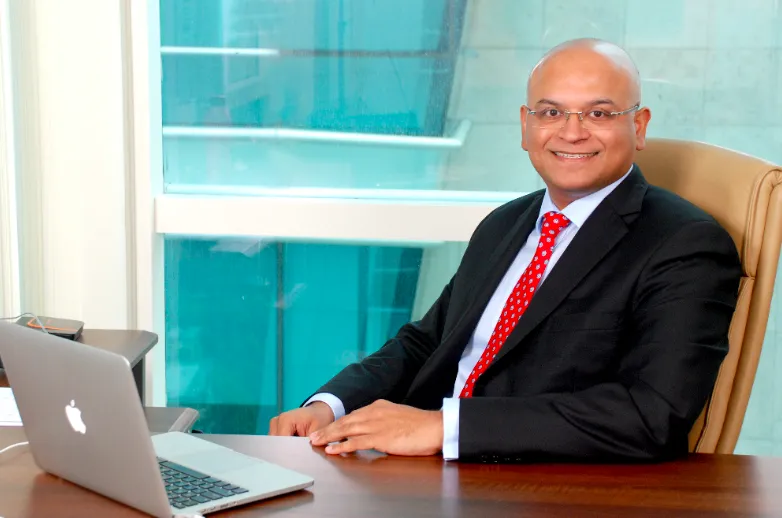How Brick Eagle is solving the affordable housing problem in urban India
Brick Eagle offers funds, construction knowhow and go-to market strategies to early-stage builders to help deliver thousands of homes to low-income groups every year.
At a glance
Startup: Brick Eagle
Founders: Rajesh Krishnan and Prabhat Ranjan
Founded in: 2011
Based out of: Mumbai (with offices in Hong Kong and Singapore)
Services: Venture fund and incubator for builders and real estate entrepreneurs
Sector: Affordable housing
Funding raised: Undisclosed (funded by HNIs and banks)
India has a housing problem. It is rather acute when it comes to affordable housing or low-cost homes.
Real estate experts see it as an urban challenge primarily, and one that has been triggered by dense settlements in India’s top 20-25 cities. Despite the real estate development taking place in these locations, the demand-supply gap is huge as millions of people continue to migrate to big cities and towns annually.
To address this, the Government of India unveiled its ‘Housing for All by 2022’ Mission – National Mission for Urban Housing back in 2015. The scheme sought to build affordable homes for all, especially those in the Economically Weaker Segment (EWS), across 500 Class I cities in the country.
Three years on, targets are far from being met as is the case with most real estate development. India needs about 50 million new homes annually but falls short by tens of millions. Vast acres of urban land lie unmanaged or unfit for deployment, access to capital is limited, large private sector players don’t seem to care, and the smaller developers are unable to deliver the volume required.
Enter Brick Eagle.

It was was set up in 2011 by a former banker and was meant to be an incubator-cum-accelerator for “mom-and-pop” builders. The idea was to not only generate a continuous flow of capital for those starved of it, but also offer low-cost housing developers and small-time real estate entrepreneurs access to construction knowhow, new technology, sales and advertising, go-to market strategies, and so on.
The focus was strictly on low-cost housing, which Brick Eagle estimates to be a “$2 trillion sunrise industry”. The yearly demand for “affordable homes” is five million, the firm reveals, but the present supply is only about a 100,000 units or even less.
Rajesh Krishnan, co-founder & CEO of Brick Eagle, tells YourStory,
“India is the largest market for affordable housing and there is not a single developer who has scale. No developer in this space can do 5,000 homes a year but that is the scale we require. So, we set up Brick Eagle with the idea of investing in early-stage developers whom we could take to market, distribute and position their product, and help them get up the curve quickly. We looked at ourselves as the 0-to-5,000 homes accelerator.”
He adds,
“We are looking to deliver 50,000 homes to the low-income group which has been ignored by private sector developers so far. The well-meaning Tatas and Mahindras are trying even though they focus on middle-income housing. When it comes to the government scheme, there is a limit to what it can supply.”
Brick Eagle focuses on delivering Rs 10-20 lakh homes for this ignored “low-income group”. A typical home is spread across 300 square feet. Some homes are priced even lower at Rs 5-10 lakh and delivered to EWS households.
Its investments are concentrated in India’s top 20 urban areas as demand there has hit the roof. At present, projects are underway in the states of Maharashtra, Gujarat, Tamil Nadu, Rajasthan, and Uttar Pradesh. Brick Eagle has incubated 6-8 small-time developers so far. It claims to be “doubling numbers” [of homes] every year.
Rajesh says,
“We have deployed about Rs 400 crore in 10 projects so far spread across 1,000 acres of land. About 5,000 homes have been committed and 2,000 have been delivered. Recently, we delivered a Rs 10 lakh home in Coimbatore.”
In October 2016, Brick Eagle Capital Advisory (its financial services unit) created a Rs 500 crore Alternate Investment Fund (AIF) that is registered with market regulator SEBI.
In September 2017, the AIF raised an additional Rs 100 crore from Axis Bank and Bennett Property Holdings (a unit of BCCL). The fund is targeting 18-20 percent in annual returns from its projects. Brick Eagle has derived a part of its project finance from HNIs too.
While opportunities in affordable housing are massive in India — what Brick Eagle calls a “split wide open” segment in real estate — the job is anything but smooth.
Rajesh explains,
“Capital is a small part of the problem. There are bigger issues. Traditional developers are not organised. The most painful part is dealing with customers. They don’t have access to bank loans, hence cannot give you a downpayment. It becomes a logistics nightmare to engage with thousands of EWS customers. Then, there are land approvals, local goons and politicians that have to be dealt with.”
Despite the challenges, Brick Eagle seems to have set out on the right path. Its efforts have been recognised by Tata Trusts and NITI Aayog, which have offered grants to the Brick Eagle Foundation for affordable housing pilots.
Brick Eagle’s present goal is to incubate 20 local developers in 20 cities by 2020, and deliver one million affordable homes by 2030. The construction has just begun.







